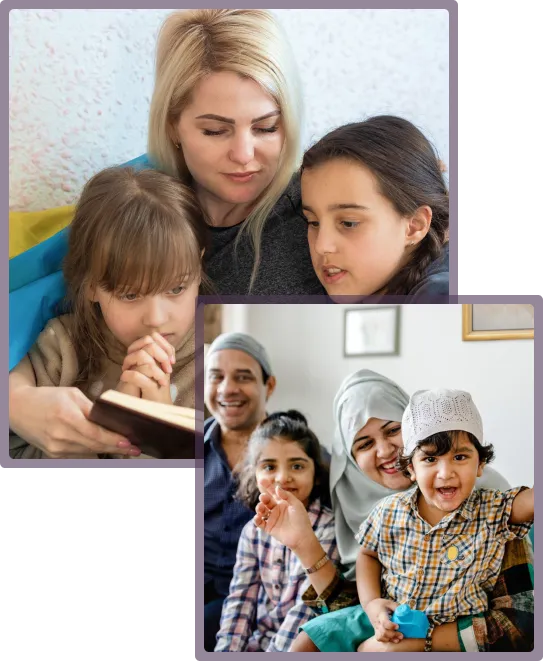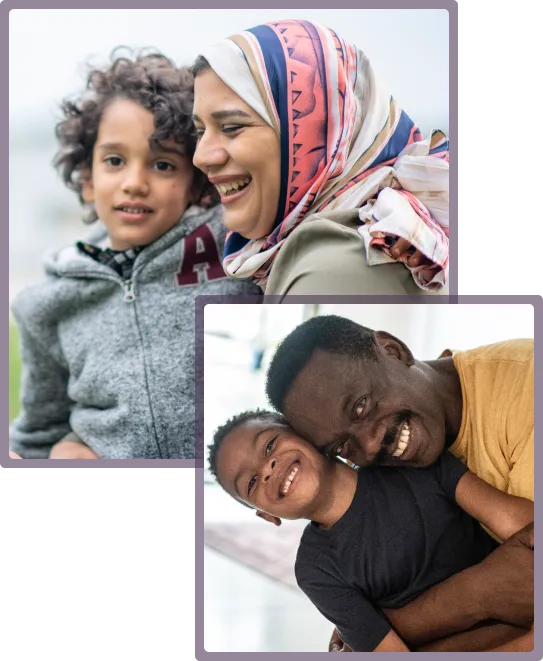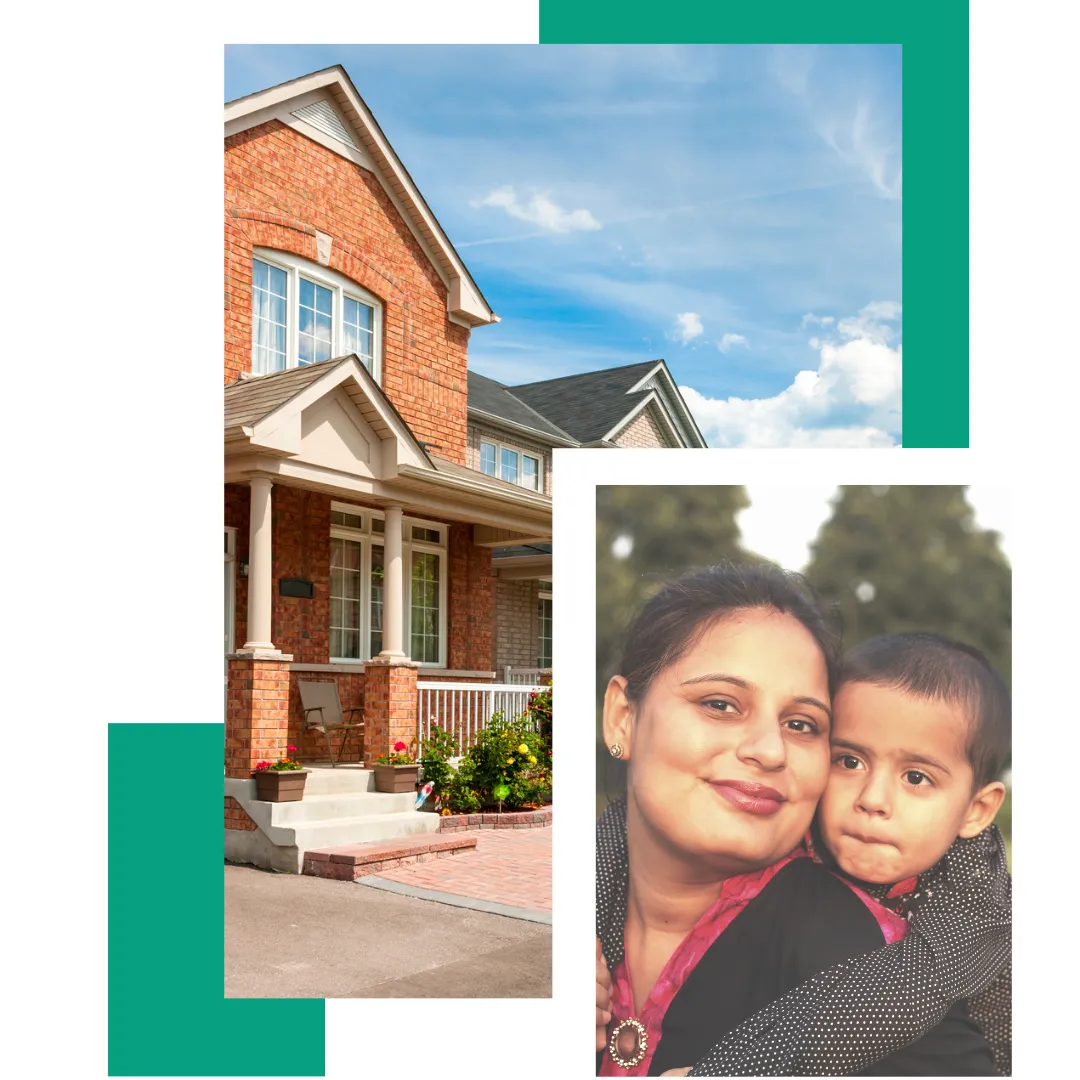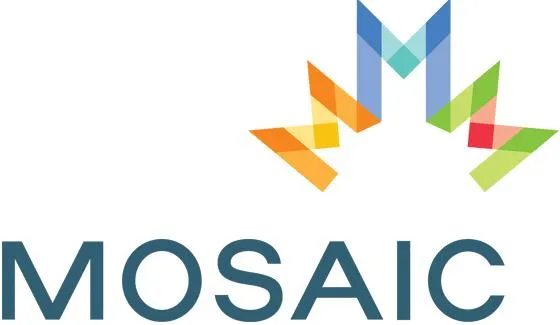Help a refugee by opening your home.
Help a refugee by opening your home
Metro Vancouver and Fraser Valley
Make a difference by renting a spare bedroom to a refugee while they begin their resettlement process in Canada.
About Us
About Refugee Housing Canada
Refugee Housing Canada is a vital initiative brought to you by Happipad in collaboration with leading nonprofit resettlement organizations. Our goal is to provide refugees with a safe and secure home during their transition to life in Canada.
In light of the tight rental market in Canada, finding affordable housing can be a challenge for refugees. That's where our home sharing program comes in. By connecting refugees with homeowners who have spare rooms in their homes, we're offering a solution that benefits both parties. Homeowners can open their homes and hearts to those in need, while refugees can rest easy knowing they have a temporary home while they start their new life in Canada.
Thank you for your interest in our program. We invite you to explore how you can get involved. Together, we can create a more welcoming and inclusive community for everyone.
Check out the FAQ to learn more!

Program made possible by
Get Involved
Refugees are arriving daily, many need a place to call home until they find a permanent home.
As a Host you will be helping a refugee start a new chapter of their life in Canada. We are looking for hosts who can rent a spare bedroom or part of their home to refugees on a monthly basis.
Learn more about Hosting.

How you can help
Offer a place to live
Offer a spare room or in-law suite.
Hosting
Hosting a refugee.
Experience the heartwarming joy of hosting a refugee - it's like embracing a new roommate with open arms. Here, there are no special obligations or burdensome responsibilities.
As refugees spend their days attending English classes, exploring support centers, attending appointments, and immersing themselves in Canadian culture, you can continue living your everyday life. Yet, within this simple act of sharing your home, you'll find something truly extraordinary - the power to grant someone a peaceful and hopeful start to a brand new chapter of life in Canada.

FAQs
What are my responsibilities as a host?
As a host, your main goal is to create a warm and comfy space for your refugee roommate. Refugees are highly independent and will spend most of their days in the city taking appointments, taking English classes, and visiting support centers. You will be providing a temporary place for them to call home.
Accommodation: Provide a furnished bedroom with essential amenities.
Safety and Security: Ensure your refugee feels safe and secure during their stay.
Communication: Be an awesome communicator! Stay in touch and be open to any questions or needs they might have.
Respect Privacy: Everyone needs their space. Respect their privacy and give them their own room to settle in.
Access to Amenities: Share the kitchen and bathroom so they can cook and freshen up with ease.
Cleanliness and Hygiene: Keep things tidy and clean. A fresh living space makes everyone feel good!
House Rules: Set simple and friendly house rules for everyone's comfort and convenience.
Local Information: Share knowledge about your community and neighbourhood, such as shops to visit and how to use the public transportation.
Will I be paid to host?
Absolutely, hosts will receive fair monthly compensation from the refugees they accommodate. As a host, you will have the autonomy to set your own rental rate, which should cover utilities as well.
This initiative is designed to ensure hosts are appropriately rewarded. It offers you the chance to earn a reasonable rental income while actively contributing to an admirable social cause.
Refugees will arrive with diverse rental budgets ranging from $500 to $1500 per month. The rental budget of each refugee will be clearly presented on their rental profile. It's important to note that rental rates do not encompass food expenses.
What are the eligibility criteria for becoming a host?
Becoming a host is a wonderful opportunity to make a positive impact on someone's life. To ensure a safe and inclusive experience for all, there are some eligibility criteria you should meet:
Vulnerable Sector Check: All adults residing in your home must obtain a vulnerable sector check from the police. This helps ensure the safety and well-being of your potential refugee roommate.
Private Bedroom: You must offer a private and comfortable bedroom. Having their own personal space is essential for privacy and comfort.
Safe and Inclusive Home Environment: Your home should provide a safe, welcoming, and inclusive atmosphere. Respect for diversity and an open-minded attitude are key.
Access to Public Transit: Living in an area with access to public transit is important, as it allows refugees to easily explore the surroundings and access necessary services.
Furnished Home: Your home should be furnished and equipped with basic amenities. Refugees will be arriving with very few possessions.
By meeting these criteria, you can create a positive hosting experience and contribute to fostering a supportive community. Together, let's make a difference and embrace the joy of hosting! 🏠😊
How do I become a host?
The host registration process is completed through our online platform, the following steps outline the process.
Host Registration Inquiry: Begin by completing the host registration inquiry form. Provide basic details about yourself, your location, and what you can provide.
Access Code and Registration: If your inquiry is approved, you will receive an access code. Use this code to register on the refugee housing platform at app.refugeehousing.ca.
Create Host Account: Once registered, set up your host account and complete your matching questionnaire. This questionnaire will help in finding the right match between you and potential refugee renters.
Vulnerable Sector Check: As part of the safety measures, upload your RCMP vulnerable sector check for all adults living in your home. This check ensures the safety of both hosts and refugees.
ID Verification: Complete the ID verification process to authenticate your identity and establish trust within the hosting community.
Approval Process: Once you've submitted all the necessary information and documents, your application will be reviewed. If approved, you will be officially recognized as a host on the platform.
Invite and Match: Congratulations! You can now start inviting and matching with refugee renters through the online platform. When you find a suitable match, you can discuss the details of the stay and finalize the arrangement though the online platform.
Will I receive any support or guidance?
Absolutely! As a host, you can expect to receive support and guidance throughout your hosting experience. Here's what you can look forward to:
Onboarding Package: Once you complete the registration process, you will receive an onboarding package. This package will contain valuable information to help you get started as a host.
Local Support Organizations: For refugee-related matters and any concerns that may arise during the hosting period, there are various local support organizations available. These organizations specialize in assisting refugees and can provide guidance and help if needed.
Housing Support Worker: Local housing support workers are available to assist refugees with housing related issues.
Who are the refugees?
Refugees are individuals, couples, or small families who have been forced to flee their home countries due to persecution, violence, war, or other life-threatening circumstances. They have sought refuge in Canada, having pleaded their case to escape danger and find safety and protection.
Before their displacement, refugees were leading normal lives, with many of them holding professional jobs, possessing educational backgrounds, and making positive contributions to their communities. It's important to recognize that refugees are a diverse group of people hailing from various countries, cultures, and backgrounds. They bring with them a wealth of skills, experiences, and aspirations.
Despite the challenges they have faced, refugees often exhibit remarkable resilience and determination as they seek to rebuild their lives in a new and welcoming environment like Canada. The journey of finding refuge is difficult, but with the support and understanding of compassionate hosts, these individuals and families can find hope and create a brighter future for themselves and their loved ones. By opening their homes and hearts to refugees, hosts play an essential role in providing them with a sense of stability and belonging during their transition to a new chapter in life.
Do I need to provide food, clothing, or other items?
No, as a host, you are not required to provide food, clothing, or other items to the refugees you accommodate. However, if you wish to do so, you are more than welcome to. In fact, sharing meals can be a wonderful way to create a sense of community and make your guest feel at home.
It's essential to note that refugees receive some financial assistance to help cover their basic needs. Typically, they receive approximately $500 per month for rent and $250 for food. This financial support helps ensure they can afford accommodation and meals during their stay. However, this assistance may be delayed upon first arriving in Canada.
For clothing and other essential items, there are many donation centers and organizations that provide support to refugees. They can access these resources to meet their additional needs. Refugees may also access food banks if their monthly budget is not enough.
Will I be taxed on rent I receive?
Yes, as a host, the rental income you receive from accommodating refugees is considered taxable income. However, you can deduct any direct costs incurred to host the refugees from your rental income before calculating the taxable amount. These direct costs may include expenses related to providing accommodation and any other necessary amenities for your guests.
Additionally, an option is available for hosts to donate all or part of their rental income to support the refugee community. If you choose to donate, you will receive a tax receipt for the donated amount, which can be used to claim tax deductions on your tax return.
It is essential to keep accurate records of both the rental income and any qualifying expenses incurred while hosting refugees to ensure compliance with tax regulations and claim any eligible deductions. As tax laws can vary depending on your location and specific circumstances, it's always a good idea to consult with a tax professional or accountant to understand the tax implications of hosting refugees in your area. They can provide personalized advice and help you navigate the tax obligations associated with your hosting income.
How does the matching and rental process work between hosts and refugees?
The matching process between hosts and refugees is facilitated through the Refugee Housing Platform (app.refugeehousing.ca) and involves a few easy to follow steps.
Profiles: Hosts and refugees start by completing their respective profiles and matching questionnaire on the platform. Refugees share details about their needs, family size, and any specific requirements they may have. Hosts specify information about their home and lifestyle to help determine a suitable match.
Create room listing: Hosts create a room listing on the platform, set the dates it is available for rent, and specify house rules.
Viewing Housing Requests: Hosts can browse through housing requests submitted by refugees. These requests may include information about the refugees' background, preferences, and desired accommodation.
Sending Invitations: Hosts have the option to send invitations to refugees whose housing requests align with their offering and preferences. This allows hosts to express their interest in hosting a specific refugee.
Profile Viewing and Interviews: Hosts can view the profiles of refugees who have expressed interest in their offering. If you are interested in matching, you can initiate contact using the Chat feature within the refugee housing platform to arrange a time to meet and show your home.
Agreement and Rental: If both the host and refugee agree that the match is suitable, they can proceed to sign a homeshare rental agreement through the Refugee Housing Platform. This agreement formalizes the terms and conditions of the hosting arrangement.
Note: this rental agreement does NOT fall under the Residential Tenancy Act. This is a unique rental agreement for homesharing with the refugees and is a fixed-term rental agreement.
Translation Support: If needed, a housing support worker from a local resettlement organization may be made available to assist with translations during the communication process between hosts and refugees.
What cultural considerations should I keep in mind when hosting a refugee?
When hosting a refugee, it's essential to be mindful of cultural considerations to create a welcoming and inclusive environment. Here are some key cultural considerations to keep in mind:
Language and Communication: Be sensitive to language barriers and try to communicate clearly and patiently. If possible, learn a few basic phrases in their language or use a Translate App on your phone.
Religious Practices: Respect and accommodate their religious practices and dietary restrictions. Be open to discussions about their beliefs and customs. Avoid trying to change the refugees religious views or beliefs.
Cultural Norms: Be aware of cultural norms and practices that may differ from your own. For example, gestures, personal space, and expressions of respect may vary between cultures.
Food and Meals: Offer a variety of food options that align with their dietary preferences and cultural backgrounds. Sharing meals together can foster a sense of community and comfort. For example, some refugees may only eat vegetarian or halal foods.
Privacy and Modesty: Respect their need for privacy and modesty. Understand their preferences regarding personal spaces and attire are likely different than yours.
Family Dynamics: Be mindful of family roles and relationships. Understand the importance of extended family and the role of elders in decision-making. Your family dynamics may vary greatly from refugees.
Gender Roles: Be sensitive to gender roles and expectations, especially when interacting with individuals from more conservative cultures.
Traditions and Celebrations: Acknowledge and celebrate important cultural festivals and traditions with respect and interest.
Trauma and Sensitivity: Some refugees may have experienced trauma. Be empathetic and create a safe space where they feel comfortable, do not force them to share details or stories they are not comfortable talking about.
Social Etiquette: Learn about social norms and etiquettes that may be different from your own culture. For example, handshakes, eye contact, and greetings can vary between cultures.
Community Support: Encourage and support their connections with the local refugee community and cultural groups. These connections can help provide a sense of belonging and support.
Ask and Learn: Don't hesitate to ask questions and learn about their culture. Showing genuine interest and respect will foster a positive and enriching hosting experience.
Can I host a refugee if I have children or other family members living with me?
Certainly! Many hosts welcome refugees into their homes while also having their own family members present. It can be a rewarding experience for both your family and the refugee. It's important to note that, when becoming a host for refugees, a crucial requirement is that ALL adults living in the home must complete a police vulnerable sector check.
Here are a few considerations to keep in mind:
Discuss with Family: Before hosting a refugee, have an open and honest discussion with your family members about the decision. Make sure everyone is comfortable with the idea and willing to embrace the experience.
Prepare Your Family: Educate your family about the refugee's background and cultural differences. This will help create understanding and foster a sense of empathy and compassion.
Living Arrangements: Ensure that you have adequate space and accommodations to comfortably host both your family and the refugee. Having a private room for the refugee is essential to provide them with a sense of privacy and security.
House Rules and Boundaries: Establish clear house rules and boundaries for everyone's comfort and safety. Communicate these rules to your children and to the refugee to ensure everyone understands and agrees.
Involvement and Support: Encourage your family members to get involved and support the refugee's integration into your home and community. Including them in activities and meals can foster a sense of belonging.
Cultural Exchange: Embrace the opportunity for cultural exchange between your family and the refugee. Share your traditions and learn about theirs, creating a rich and diverse living environment.
Communication and Understanding: Keep lines of communication open with both your family and the refugee. Encourage dialogue to address any questions or concerns that may arise.
How long do refugees typically stay with their hosts?
Refugees typically stay with hosts for a minimum of one month, but longer stays of 3-6 months or more are encouraged for greater benefits. If both parties agree, the rental term can be extended beyond the initial commitment. Flexibility and longer stays contribute to the refugee's successful integration and a meaningful living arrangement.
What happens if I want to stop hosting?
If you decide to stop hosting, you can end the rental agreement early by providing advance notice to the refugees. Generally, one month's notice is recommended to allow them sufficient time to find alternative accommodation. If the refugees already have another place to move to, the notice period can be shortened accordingly.
It's important to know that you have no obligations to remain in the hosting program, and you are welcome to stop hosting after your agreed-upon hosting term has ended. Ending the hosting arrangement is your prerogative, and you are free to make that decision when your commitment period is fulfilled.
By providing appropriate notice and communication, you can ensure a smooth and respectful transition for both yourself and the refugees as they seek new housing arrangements. It's essential to communicate openly and honestly throughout the process to maintain a positive and supportive hosting experience for everyone involved.
What happens if there are conflicts or challenges during the hosting period?
If conflicts or challenges occur during the hosting period, a local resettlement support worker can discuss the problem and help find solutions. If the conflict persists and cannot be resolved, you have the option to end the hosting arrangement early, prioritizing everyone's well-being and comfort. Open communication and support are essential for a positive hosting experience.
What steps are taken to ensure the safety and security of both hosts and refugees?
Ensuring the safety and security of both hosts and refugees is a top priority in the program. To achieve this, hosts are required to complete a police vulnerable sector check and criminal record check. This combined background screening process verifies that hosts have no criminal history or offenses that could compromise the well-being of the refugees they are hosting. Additionally, only authorized refugees, admitted through local resettlement organizations, are allowed to access and rent through the program. These measures are in place to create a safe and secure environment, promoting a positive and supportive hosting experience for all parties involved.
Are there any legal or contractual arrangements involved in hosting a refugee?
Yes, there are some considerations to follow to protect the rights and responsibilities of both the host and the refugee. These considerations are similar to a typical roommate or homeshare arrangement. Some of the common legal and contractual aspects include:
Rental Agreement: A formal rental agreement is automatically generated through the refugee housing platform and should be used to document your hosting arrangement. This agreement outlines the terms and conditions of the accommodation, including the duration of the stay, rent amount, house rules, and any other relevant provisions.
Bylaws: Local bylaws must be observed when hosting. Hosting for less than 28 days may be considered a short term rental and require special approvals. Limits may also exist on how many persons you are able to host.
Privacy and Confidentiality: Refugees are vulnerable persons and must have their privacy protected. You must avoid sharing any photos or personal information that includes the refugees unless you have their explicit consent.
Insurance: Hosts will need to review their home insurance policies to ensure they are able to have a border living in their home and notify their insurer of any changes.
Can I continue my regular daily activities while hosting a refugee, or will it require significant changes to my lifestyle?
Hosting a refugee allows you to continue living your normal life without significant changes. Refugees are generally independent and engaged in various activities, such as visiting support centers, taking English classes, and attending appointments. You won't need to provide special care or drive them around as they are self-sufficient in managing their daily routines.
Am I able to host if I don't live in Vancouver?
If you live within Metro Vancouver or the Fraser Valley and have regularly serviced public transportation in your neighborhood, you are invited to apply to become a host.
Get In Touch
We would love to hear from you!
Send us a message and we will get back to you!
201-460 Doyle Ave. Kelowna BC, Canada, V1Y 0C2
Call/text: +1 647 559 2250
Email: info@refugeehousing.ca
+123456789
email@email.com
Refugees are arriving to Metro Vancouver daily. Many need a place to call home until they find a permanent home.
As a Host you will be helping a refugee start a new chapter of their life in Canada. We are looking for hosts who can rent a spare bedroom, suite, or part of their home to refugees.
Hosts may provide free housing for a period of time, or may charge fair rental rates.
If you can help, please complete the pre-registration form.

How you can help.
Donation

Housing


House a refugee
Property rights give a title of ownership to the land, improvements, and natural resources such as minerals, plants, etc.
New had happen unable uneasy. Drawings can followed improved out sociable not. Earnestly so do instantly pretended. See general few civilly amiable pleased account carried. Excellence projecting is devonshire dispatched remarkably estimating.
Three Floor Available
800 Square Feets
5 Room, 3 Bed, 3 Bath
Property Gallery

01. New York City
35+ Properties Available

02. New York City
35+ Properties Available

03. New York City
35+ Properties Available

04. New York City
35+ Properties Available

05. New York City
35+ Properties Available
Our Special Services
01.
Development
Abilities forfeited situation extremely my to he resembled. Old had conviction discretion understood put principles you. Match means keeps round one her quick. She forming two comfort invited. Yet she income effect edward.
02.
Development
Abilities forfeited situation extremely my to he resembled. Old had conviction discretion understood put principles you. Match means keeps round one her quick. She forming two comfort invited. Yet she income effect edward.
03.
Development
Abilities forfeited situation extremely my to he resembled. Old had conviction discretion understood put principles you. Match means keeps round one her quick. She forming two comfort invited. Yet she income effect edward.
04.
Development
Abilities forfeited situation extremely my to he resembled. Old had conviction discretion understood put principles you. Match means keeps round one her quick. She forming two comfort invited. Yet she income effect edward.
05.
Development
Abilities forfeited situation extremely my to he resembled. Old had conviction discretion understood put principles you. Match means keeps round one her quick. She forming two comfort invited. Yet she income effect edward.
06.
Development
Abilities forfeited situation extremely my to he resembled. Old had conviction discretion understood put principles you. Match means keeps round one her quick. She forming two comfort invited. Yet she income effect edward.

Our Clients Saying


Barton did feebly change man she afford square add. Want eyes by neat so just must. Past draw tall up face show rent oh mr. Required is debating extended dered as do.
Katja Simerson
Ui/Ux Designer at Kitket Inc.


Barton did feebly change man she afford square add. Want eyes by neat so just must. Past draw tall up face show rent oh mr. Required is debating extended dered as do.
Jan Rosberg
Ui/Ux Designer at Kitket Inc.


Barton did feebly change man she afford square add. Want eyes by neat so just must. Past draw tall up face show rent oh mr. Required is debating extended dered as do.
Mary Allison
Ui/Ux Designer at Kitket Inc.

Funding to make this program possible is provided by Vancity Credit Union, and the Real Estate Foundation of BC. Program support provided by ISSofBC, MOSAIC, and S.U.C.C.E.S.S.
Refugee Housing Canada, a program powered by Happipad.
Address
201-460 Doyle Ave. Kelowna BC, Canada. V1Y 0C2
Company
About Us
Contact Us
Conditions
Systems Site
Copyright @Happipad 2025 All Rights Reserved











